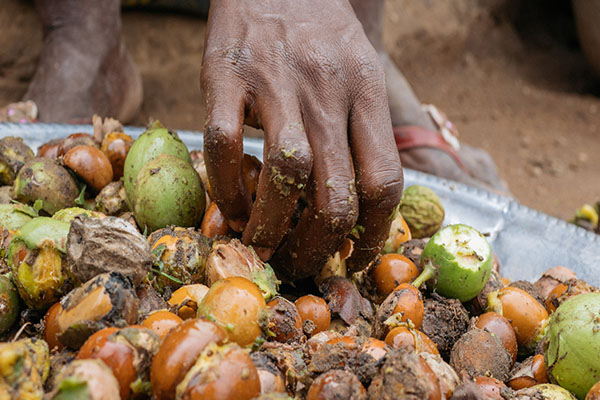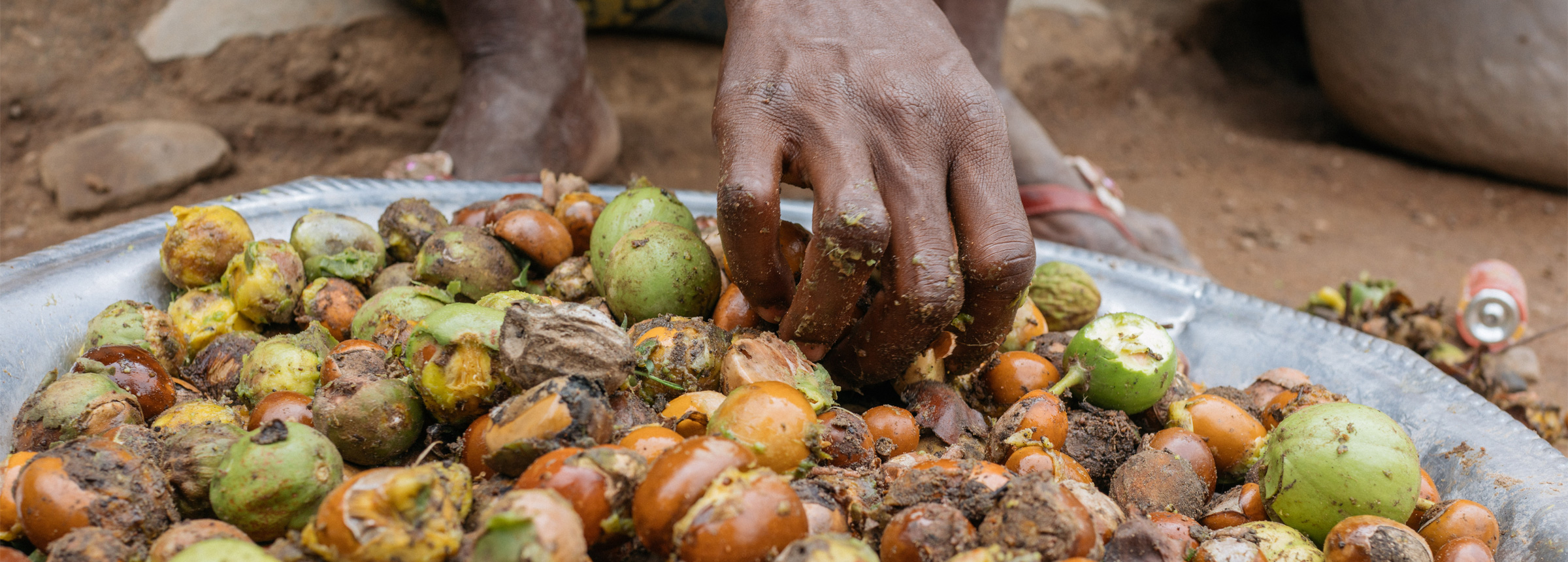
USAID Improves the Livelihoods of Rural Women in Northern Ghana
On May 9, 2017, the USAID-funded Feed the Future Ghana Agriculture and Natural Resource Management Project (AgNRM) welcomed the USAID/Ghana Mission Director, Andrew Karas, to Dorimon, in the Wa West District of the Upper West Region. The paramount chief of Dorimon, Naa Sohimwininye Danaa Gori II received Mr. Karas on behalf of the people and applauded USAID’s efforts to reduce poverty and improve rural livelihoods in Northern Ghana.
During the visit, Mr. Karas thanked the paramount chief for his cooperation with the AgNRM project and support to USAID in enhancing the livelihoods in Dorimon and surrounding communities.
Through Feed the Future, the U.S. government’s global hunger and food security initiative, AgNRM aims to alleviate poverty in rural communities through increased incomes from natural resource products such as shea and moringa; improve food and nutrition security; increased farmer and community security/access to land and natural resources and strengthen environmental stewardship. The project works closely with the Dorimon Traditional Council to establish a Community Resource Management Area (CREMA) in Dorimon to empower community members to effectively manage their natural resources.
The AgNRM project recently trained 170 women beneficiaries in Dorimon on the use of improved cookstove (InStove technology) which will make it safer and more convenient to process shea as opposed to traditional open-fire stoves. The AgNRM project also trained community members on adding value to moringa by processing the leaves and seed into oil, ointment, liquid and bar soaps and using the plant as a food supplement.
Mr. Karas also interacted with female shea processors in the community benefitting from AgNRM activities and observed a cookstove demonstration. Faustina Sanbor, Dorimon CREMA member remarked, “the stove is easy to set up with very little fire wood. When the shea is boiling, we can get very close to the stove without feeling any heat. This stove is very safe, clean and more convenient as compared to the traditional stove.”
Commenting on her new skills in making productive use of the moringa plant, another community member, Sauba Iddrisu was excited that AgNRM is helping her and other women to develop economic value from the plant. She said, “We are happy to have received the training that will help us improve upon the various uses of the moringa plant. We can now process moringa into oil, ointment, liquid and bar soaps to improve our sources of income and take care of our needs.”
Mr. Karas also visited a home garden supported by the AgNRM project, belonging to Alima Sulemana who has secured full rights land from her husband. She can now dictate what crops to grow on the field with little interference from her husband or relatives. She has also adopted new technologies introduced by the AgNRM project which have helped her to improve soil fertility and enhanced the health of crops. Applying a bio-fermentation of waste materials from household waste mixed with animal droppings has Alima enthusiastic about improving the fertility of her plot. “Thanks to USAID, I now have a secured plot of land for household gardening. I am currently nursing moringa seedlings with plans to grow vegetables,” remarked Alima. “The new technologies are helping to improve the fertility of the soil so that my crops can grow well.”
Mr. Karas was excited that women within Dorimon and surrounding communities embraced the livelihood opportunities provided by USAID through the AgNRM project and congratulated Alima’s husband, the paramount chief and other male leaders for being change agents in their communities.
Related Projects

